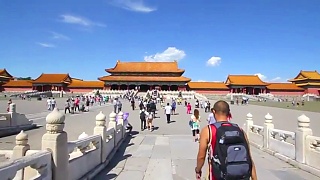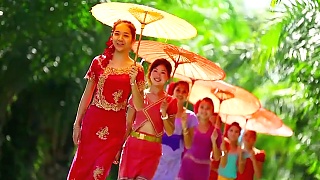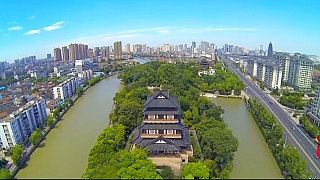Beijing, the capital city of China, is a vibrant metropolis steeped in history, culture, and modernity. Here's a brief overview of what you can expect as a tourist in Beijing:
Historical Landmarks:
The Great Wall of China: One of the most iconic structures in the world, the Great Wall is easily accessible from Beijing. Mutianyu and Badaling sections are popular among tourists.
Forbidden City (Palace Museum): A UNESCO World Heritage Site, this vast imperial palace complex was home to Chinese emperors for over 500 years. It houses numerous halls, courtyards, and historical artifacts.
Temple of Heaven: A masterpiece of Chinese architecture, this ancient temple complex served as a place of worship for emperors to pray for good harvests.
Summer Palace: A stunning ensemble of lakes, gardens, and palaces, the Summer Palace served as a retreat for emperors during the Qing dynasty.
Tiananmen Square: One of the largest city squares in the world, Tiananmen Square is flanked by important landmarks such as the Monument to the People's Heroes, the Great Hall of the People, and the Mausoleum of Mao Zedong.
Cultural Sites:
Beijing Hutongs: Explore the narrow alleyways and traditional courtyard residences of Beijing's historic neighborhoods. You can take a rickshaw tour or simply wander around on foot.
Beijing Opera: Experience traditional Chinese opera performances at venues like the Liyuan Theater or the Chang'an Grand Theatre.
798 Art District: A hub of contemporary art and culture, this former industrial area is now home to numerous galleries, studios, and cafes.
Modern Attractions:
Olympic Park: Visit iconic structures such as the Bird's Nest (National Stadium) and the Water Cube (National Aquatics Center) from the 2008 Beijing Olympics.
CBD (Central Business District): Marvel at the futuristic skyline of Beijing's modern business district, which includes landmarks like the CCTV Headquarters and the China World Trade Center Tower III.
Culinary Delights:
Peking Duck: Indulge in Beijing's most famous dish, crispy roast duck served with pancakes, scallions, and hoisin sauce.
Street Food: Explore the city's vibrant street food scene and sample local delicacies like jianbing (savory crepes), lamb skewers, and dumplings.
Practical Tips:
Transportation: Beijing has an extensive public transportation system, including the subway, buses, and taxis. However, traffic can be heavy, so plan your travels accordingly.
Language: While English is not widely spoken, especially outside tourist areas, many signs and transportation announcements are in English. It's helpful to carry a translation app or a phrasebook.
Weather: Beijing experiences four distinct seasons, with hot summers and cold winters. The best times to visit are spring (April to June) and autumn (September to October) when the weather is mild and comfortable.
Etiquette: Respect local customs and traditions, such as removing your shoes before entering someone's home and using both hands to pass or receive items.
Beijing offers a rich tapestry of experiences for tourists, blending ancient heritage with modern innovations. Whether you're fascinated by history, culture, or culinary delights, there's something for everyone in this dynamic city.
 Summer scenes from BeiJing 北京 (2)
Summer scenes from BeiJing 北京 (2)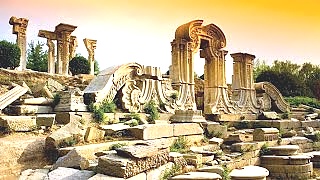


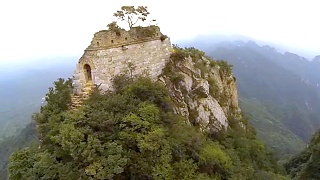

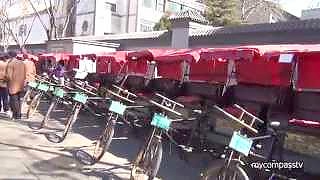
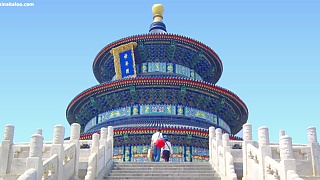
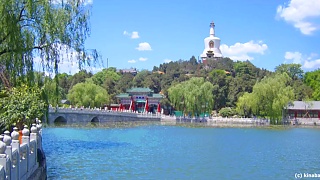
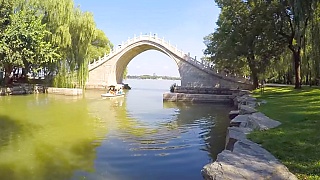

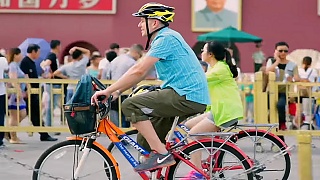

![Top videographers - bjKina, AnyuXu and DearNessie - take you on a tour of Beijing . . . First song : Going Home by Faye Wong, from the album To Love, 2003. Note : highly addictive music straight ahead . . . A fantastic video film by AnYu Xu . . . Includes a great hyperlapse along Beijing`s south-north axis, from [TianTan, the Temple of Heaven], QianMen, through Tian`AnMen, GuGong (`Old Palace`, the `Forbidden City` / Palace Museum), JingShan Park, the Drum and Bell Towers and onto the Olympic Park and Olympic Forest Park . . . New (old) BeiJing - fashion, food and the vibe, with DearNessie. A vlogging masterclass - `show don`t tell`; plus deft editing and great music . . . The beautiful, blue sky city of BeiJing 北京](https://www.beijingbuzzz.com/kk137.jpg)




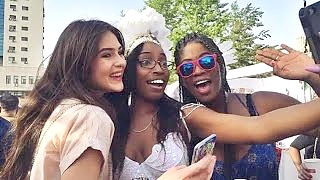
![[May 15th 2017] Heat-wave ahead ! Summer is hotting up in BeiJing this week - into the high 30s C (90s F in old money). Keep cool (keep hydrated), be cool (sensible, giving and creative), keep in touch (we love your feedback and input), and above all - love life (live more; BE love) . . . Like our site ? - help us with a donation. Something to share ? - your own film or something you like - let us know ! To have and to be - huh ? The two big verbs - to have and to be . . . Thinking through this seemingly abstract concept could change your life, for the better. Two very different ways to live; or rather - really live or not really live. To have is good, to a point; but can be a holding onto more than we really need, and a baggage of the past dragged into the future that prevents us living in the real now. For what we `have` is not just physical stuff - it is also the clutter and beliefs in our mind. To be, is to live, free of the past and all that we `have` (and `know`). Live more . . . be more . . . Listen less (to others and beliefs), and look more (and think more, based on what is, not on what you have heard). Someone once said that to love is much better than to be loved; to give so much better than to receive (have); and so it is with to have and to be . . . To be is the way. Everything taken, comes to an end. Everything given ripples through time for an eternity. To ask for nothing, and give all - that is love. To be, not to have. ~~~ You might like to read Erich Fromm`s To Have or To Be, and The Art of Love, which also explore this concept, and is essentially what the Buddha told us. Easy read; concise and potent. Also good reading : Jiddhu Krishnamurthi - for example, Commentaries on Living (three easy read volumes), and Alan Watts - for example, The Way of Zen. Blue sky BeiJing 北京](https://www.beijingbuzzz.com/bb146.jpg)


